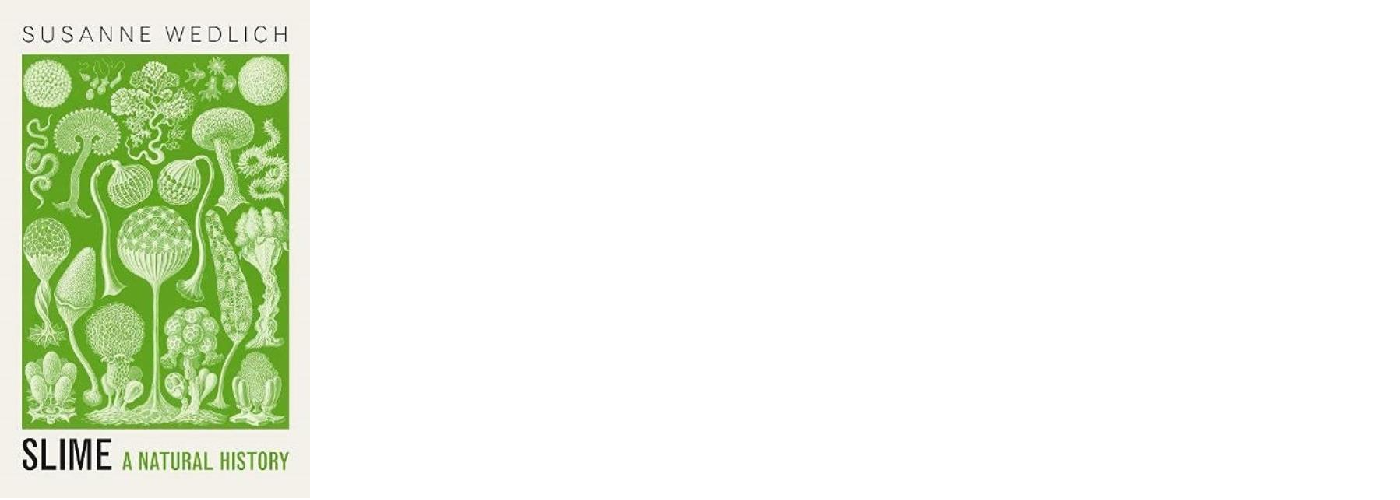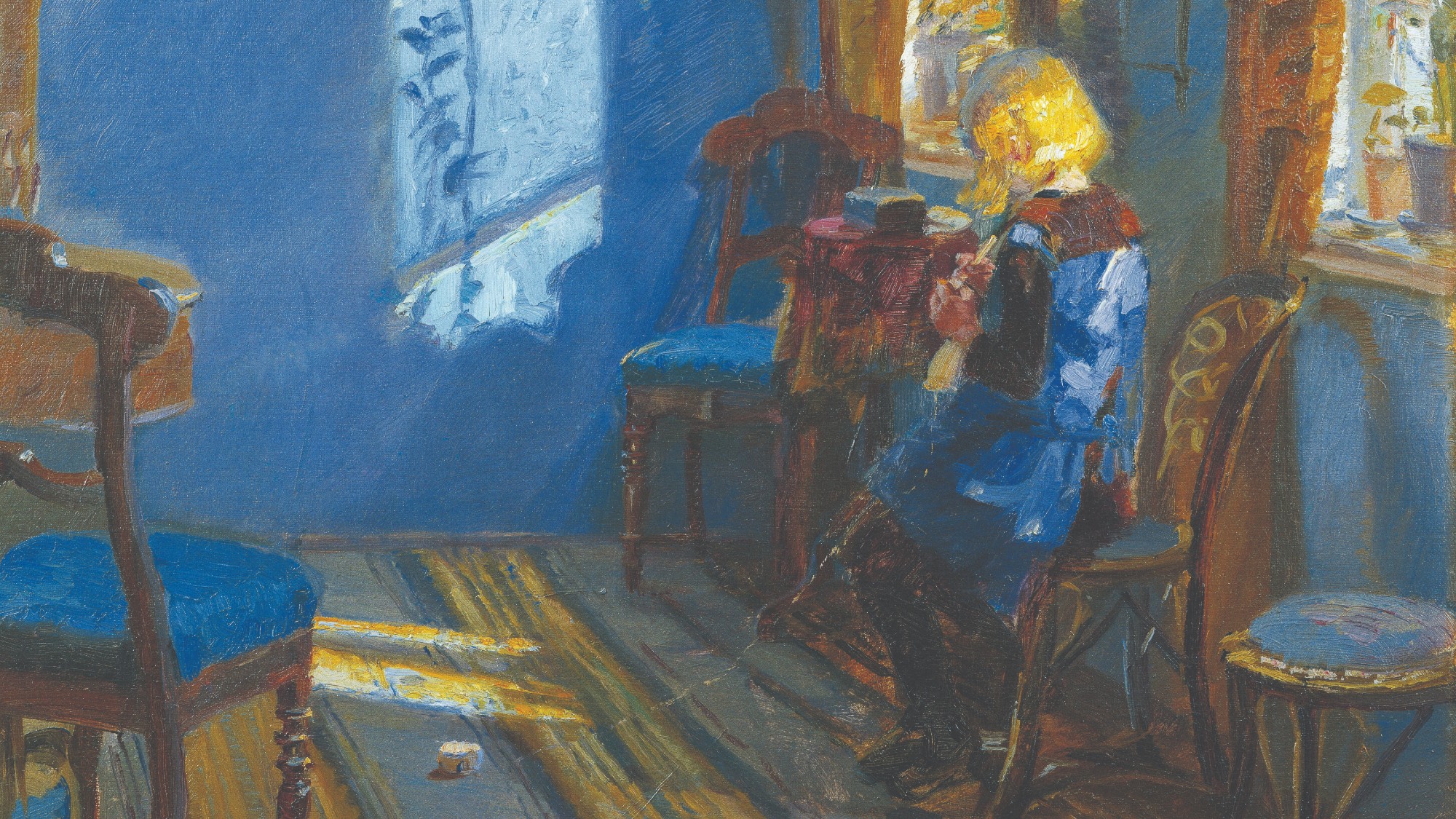Book of the week: Beyond a Fringe by Andrew Mitchell
The Conservative MP has written a ‘wonderfully funny’ memoir full of valuable insights into our political culture

A free daily email with the biggest news stories of the day – and the best features from TheWeek.com
You are now subscribed
Your newsletter sign-up was successful
Most people have a natural aversion to slime, said Simon Ings in The Times. Yet according to the German biologist Susanne Wedlich, this wondrous substance deserves closer attention. Slime, she tells us, “holds the world together”. For not only is it present just about everywhere in nature, but it is the very “source of life”: had “stiffened water” not existed early in our planet’s history, then cell development and multiplication – the processes that led to our existence – would never have been possible.
Slime is stuffed with facts of the “surely that can’t be real?” variety, said Mark Mason in the Daily Mail. Hagfish defend themselves by jellying the water around them, causing even sharks to gag. There’s a species of squid that “confuses predators by shooting out several slimy replicas of itself”. And we learn, too, of a snail that uses slime trails to select its partner – a useful form of “advertisement-by-slime”, Wedlich notes, since such creatures “rarely meet by chance, and speed-dating is out of the question”.
Wedlich, who defines slime as “water caged in a three-dimensional structure”, shows that our “prejudice” against it is unfounded, said Steven Poole in The Daily Telegraph. Without slime, we wouldn’t be able to breathe, because our lungs use it to extract oxygen from air. In our bodies and in nature it has multiple functions: it acts as a lubricant, a glue and a barrier.
The Week
Escape your echo chamber. Get the facts behind the news, plus analysis from multiple perspectives.

Sign up for The Week's Free Newsletters
From our morning news briefing to a weekly Good News Newsletter, get the best of The Week delivered directly to your inbox.
From our morning news briefing to a weekly Good News Newsletter, get the best of The Week delivered directly to your inbox.
Slime, remarkably, can even think – or, “at least, slime moulds have been shown to solve mazes, and in one famous experiment connected a set of nodes in a way eerily similar to the actual Tokyo subway map”. Both a “deft cultural history of slime” and an “exegesis of its science”, this is a “rich and strange” – and compelling – book.
Granta 336pp £20; The Week Bookshop £15.99

The Week Bookshop
To order this title or any other book in print, visit theweekbookshop.co.uk, or speak to a bookseller on 020-3176 3835. Opening times: Monday to Saturday 9am-5.30pm and Sunday 10am-4pm.
A free daily email with the biggest news stories of the day – and the best features from TheWeek.com
-
 Film reviews: ‘Send Help’ and ‘Private Life’
Film reviews: ‘Send Help’ and ‘Private Life’Feature An office doormat is stranded alone with her awful boss and a frazzled therapist turns amateur murder investigator
-
 Movies to watch in February
Movies to watch in Februarythe week recommends Time travelers, multiverse hoppers and an Iraqi parable highlight this month’s offerings during the depths of winter
-
 ICE’s facial scanning is the tip of the surveillance iceberg
ICE’s facial scanning is the tip of the surveillance icebergIN THE SPOTLIGHT Federal troops are increasingly turning to high-tech tracking tools that push the boundaries of personal privacy
-
 Film reviews: ‘Send Help’ and ‘Private Life’
Film reviews: ‘Send Help’ and ‘Private Life’Feature An office doormat is stranded alone with her awful boss and a frazzled therapist turns amateur murder investigator
-
 The Beckhams: the feud dividing Britain
The Beckhams: the feud dividing BritainIn the Spotlight ‘Civil war’ between the Beckhams and their estranged son ‘resonates’ with families across the country
-
 6 homes with incredible balconies
6 homes with incredible balconiesFeature Featuring a graceful terrace above the trees in Utah and a posh wraparound in New York City
-
 The Flower Bearers: a ‘visceral depiction of violence, loss and emotional destruction’
The Flower Bearers: a ‘visceral depiction of violence, loss and emotional destruction’The Week Recommends Rachel Eliza Griffiths’ ‘open wound of a memoir’ is also a powerful ‘love story’ and a ‘portrait of sisterhood’
-
 Steal: ‘glossy’ Amazon Prime thriller starring Sophie Turner
Steal: ‘glossy’ Amazon Prime thriller starring Sophie TurnerThe Week Recommends The Game of Thrones alumna dazzles as a ‘disillusioned twentysomething’ whose life takes a dramatic turn during a financial heist
-
 Anna Ancher: Painting Light – a ‘moving’ exhibition
Anna Ancher: Painting Light – a ‘moving’ exhibitionThe Week Recommends Dulwich Picture Gallery show celebrates the Danish artist’s ‘virtuosic handling of the shifting Nordic light’
-
 H is for Hawk: Claire Foy is ‘terrific’ in tender grief drama
H is for Hawk: Claire Foy is ‘terrific’ in tender grief dramaThe Week Recommends Moving adaptation of Helen Macdonald’s bestselling memoir
-
 Our Town: Michael Sheen stars in ‘beautiful’ Thornton Wilder classic
Our Town: Michael Sheen stars in ‘beautiful’ Thornton Wilder classicThe Week Recommends Opening show at the Welsh National Theatre promises a ‘bright’ future